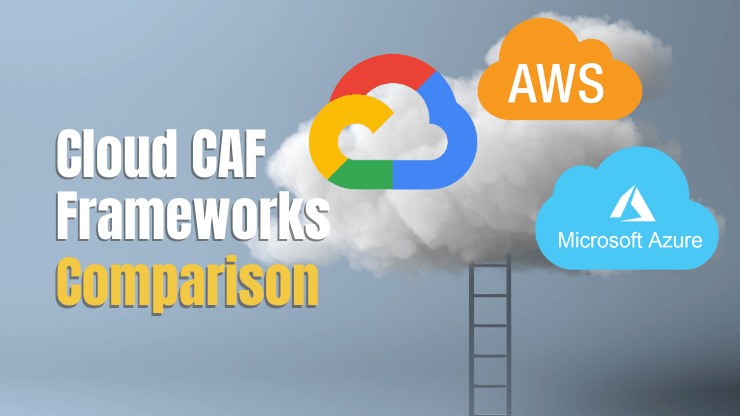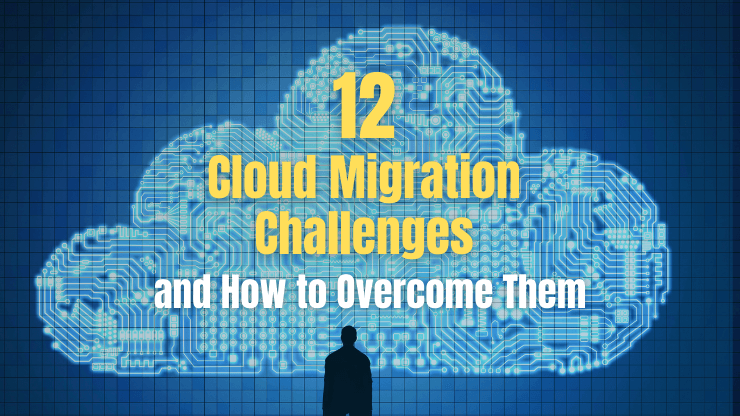DevOps is a culture and set of practices that emphasizes the collaboration and communication of both software developers and information technology (IT) professionals while automating the process of software delivery and infrastructure changes.
At its core, DevOps is all about people working together as teams in order to achieve their shared organizational goals. In order to do this effectively, teams must be willing to communicate openly and candidly with each other, sharing both their successes and their challenges. By doing so, they can more effectively collaborate and work together to find solutions that will help them meet their goals.
The process of setting up DevOps within an organization is not a simple task. It requires expert handling and deep insight into how the organization functions and design custom integrating software for the same. This calls for expert advice and expertise and hence outsource DevOps services to a competent outsource consultant.
How does DevOps outsourcing work?
Every organization is unique in its culture and operations, and hence there can’t be one solution that fits all. Each project requires a personal approach. A DevOps outsourcing services will partner with the in-house software development team and work together in tandem to manage the day-to-day operations.
The DevOps service provider will walk you through the nature and scope of the project and decide on the implementation on a case-by-case basis.
Some of the devops outsourcing services:
- Fully Managed DevOps Services
- DevOps Consulting
- Operations Management
- DevOps Automation
- Provide DevOps Engineers
Depending on the requirement of the organizational needs and goals, the DevOps implementation and services can be tweaked. Though DevOps is considered to be a capability for agility function, organizations still feel challenged to optimize their software development and effectively outsourcing DevOps. The competent DevOps outsourcing firm does its best to serve nearshore and offshore companies.
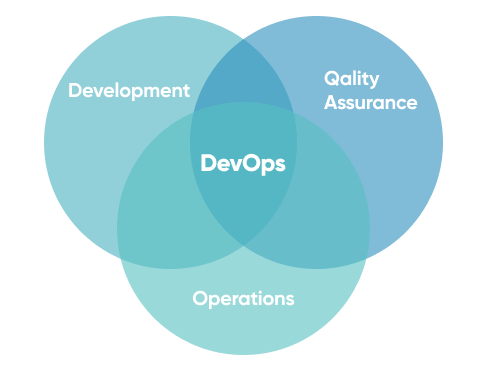
When do you need DevOps outsourcing?
DevOps is an integral approach for organizations looking forward to adopting lean and agile practices for increasing the efficiency and effectiveness of their service and product delivery while keeping in mind the preferences of the end users. Due to the multiple challenges involved, it is sometimes a tricky decision for an organization to outsource their DevOps implementation needs. And there are enough reasons why organizations benefit from having a DevOps consultants or services provider as a partner.
Below are the reasons for the need to outsource DevOps services:
The expertise is ready and it saves time and effort on the part of an organization to train, gather experience, and expertise, which is a long-run activity. The talent is instantly accessible and is good leverage for both the DevOps outsourcing company and the vendor. Since an outsourcing company’s core focus is on its niche of DevOps implementation, the teams working in those organizations have wider exposure to multiple projects, challenges, and solutions offered.
Ease of Scaling OperationsWhen it is time for the organization to feel the need to scale the operations higher, the cost of hiring and administrative expenses go up too. Outsourcing eliminates the process as they handle the hiring and administrative resources required as per the need. Simply put, the organization needs to focus on its growth and leverage the services of the partner company to handle their requirements.
Eliminates Human Resources Management ActivitiesHaving an in-house DevOps team incurs huge costs. The cost of training, retention, and administrative setup to oversee the expanded unit all need to be managed with continuous oversight. The hiring of the talent pool, searching for expertise, and pay structure are all taken care of by the DevOps services provider. The client organization can avoid the administrative time and process involved in handling teams and managing them on a day-to-day basis.
Greater Technological ExpertiseOutsourcing companies ensure their teams are updated with the latest technologies. The organization ensures its staff is adequately certified and ready to jump into a project when needed. This saves a lot of time and money for the client in comparison to managing an in-house team.
Access to a Wider Outlook for SolutionsSince the DevOps engineer comes with vast experience, they have better insight into optimal solutions that may be missed otherwise. As an outsider, the outsourcing company would have a deeper insight into the processes of the company which may be overlooked otherwise because they have an external industry perspective and expertise. The best solutions can be brought to the table.
Optimal usage from BudgetingThe cost of operations for an in-house DevOps team can be better channelized through an outsourced services partner. Having a DevOps outsourcing company eliminates administrative expenses for monitoring the existing in-house team. There is ample scope for allocating the resources for expanding the scope of DevOps through an experienced outsourcing company for the organization rather than spending on management expenses for oversight of in-house teams.
5 Key vendor selection criteria to consider

Selecting a vendor needs to be done after thorough consideration of various factors that may affect the organization in the future. Keeping in mind a holistic view to choose an outsourcing partner will arrive at a plausible conclusion on which vendor is most suitable that understands the challenges and goals of the organization. Some organizations choose a partner based only on the credibility of the company in the effective implementation of DevOps. Some may choose based on adhering to timelines and solutions, and many may choose based only on the pricing of the services. The key is to find the match on all fronts and never compromise the quality of software development as ultimately the very purpose of choosing the DevOps approach is to bring a quality output in a set process flow.
Does your research broaden to the following criteria as mentioned below:
1. Focus on the main goals and technical requirements of your project
Define the purpose for which you are choosing DevOps for your organization. For instance, you may be looking to implement a lean and agile methodology for which DevOps serves the need for the effective integration of the software development and operations teams. Maybe you are looking for a solution to stabilize the process of product delivery and are burdened by increased costs due to missed timelines. Is the goal to resolve implementation failures? Be clear and specific on what is the end you are seeking.
This is of vital importance. The fact is that the DevOps approach does have a credible impact on the overall process flow within the organization, but without knowing what it is you are seeking to resolve or grow, the success of the project cannot be ascertained. Based on this, you will be able to evaluate whom to outsource DevOps services to.
2. Adjust your budget to your needs
Budgeting is important, but most importantly of all is the quality of the output. The pricing that you have budgeted for your project should match the quality of output that you are seeking. If the budget falls short, never compromise the quality. Choose a vendor who has the credibility and distinction of having provided quality services to many organizations over a consistent period. It is a fact that quality often comes with a competitively higher price tag. And do your pricing research from various companies and adjust your budget to your needs. And do not choose a vendor only based on a predetermined budget.
3. Check the company's experience and case studies
Another important factor is not just the credibility and vintage of the vendor company, but whether they have experience in the domain that you are seeking solutions for. Draw a quick sample of answers to the following question:
- Has the DevOps outsourcing firm handled a previous client seeking a similar solution?
- Have they adhered to the timelines of the project?
- Do they have the resources to handle the project to my organizational capacity?
What has been the experience of similar clients associated with the outsourced service provider?
These are some fact-checkers that give an initial glimpse of whom you are about to deal with. What is the use of investing time in discussing and negotiating with an outsourcing company who has never done a similar project or do not have the experience needed to handle your needs? Thorough research helps you eliminate companies that do not fit your criteria for credibility.
4. Build credibility by getting to know team members
It is possible that a company is reputed enough and has experience of DevOps implementation in many organizations. A company is made up of people who create that which needs to be implemented. What is the experience and quality of the DevOps team resources with the outsourcing company? You may seek to communicate with the team to evaluate, to your satisfaction, if they have the knowledge and ability to handle the solution that you are seeking. In many cases, you may even seek an audience with them to ask direct questions and ascertain their exposure and expertise in your field of reference, You can go further to seek their resumes and evaluate their experience and knowledge levels to handle the project. Find out what tool they use to detect code and how they reduce implementation failures.
Feel free to interact with the potential future outsourcing team before finalizing your contract with the vendor. This is important because it is not just the vintage of the company that matters, but the vintage of the experience matters too.
5. Pay attention to the flow of communication
One of the factors to consider for outsourcing in general and not just limited to DevOps is the barriers related to culture, language, ethnicity, and time zones. In a free world, none of these factors bear much weight because, ultimately, the talent pool consists of people from various backgrounds. Better still, you can find out through interaction if there may be challenges regarding communication, wider time zone gaps, etc. For instance, if language is an absolute challenge, then the day-to-day collaboration gets affected and so does the entire project. Wider time zone gaps lead to less communication and so on. Consider these factors too, of vital importance because communication is the key to effective DevOps integration in your organization.
How to find, evaluate, and choose the best DevOps outsourcing providers?
DevOps does not have a one size fits all program. Outsourcing DevOps brings different experiences based on the model and the partner chosen. Below is a detailed process flow of effective DevOps outsourcing from a vendor of caliber to deliver your outsourcing needs.
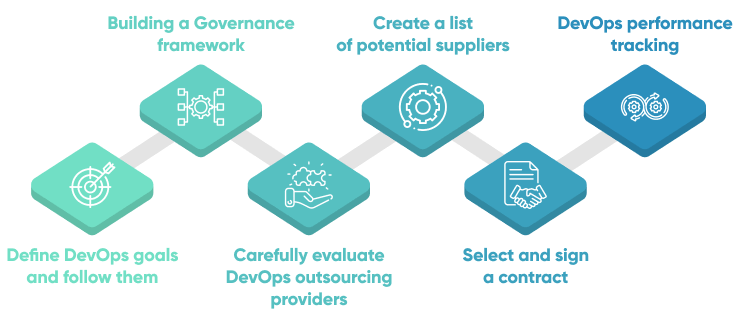
Define DevOps goals and follow them
Organizations attempting DevOps transformations need to know where to begin. And to know where to begin, they need to define their goals. DevOps is not an end in itself. It is a process as a means to an end. One of the most important goals for any organization is delivery time. They want to serve their clients with the best quality software in the shortest time span possible. Identify the problems in achieving that and prepare a detailed list of challenges to accomplish the goal. Seek out what solutions from DevOps may solve the problem and make that your direction.
Building a Governance framework
Collaboration is the heart of the entire DevOps effort and its very purpose. Define the processes, technologies to be used, and important people involved as part of a governance network. The DevOps service provider and the client need to collaborate to bring a unified functionality to both teams. This enables planning and tracking of the actions and their impact.
The chain of command from the senior management to that of the operational level needs to have a clear insight, understanding, and oversight of each other’s objectives, performance tracking, and reporting requirements.
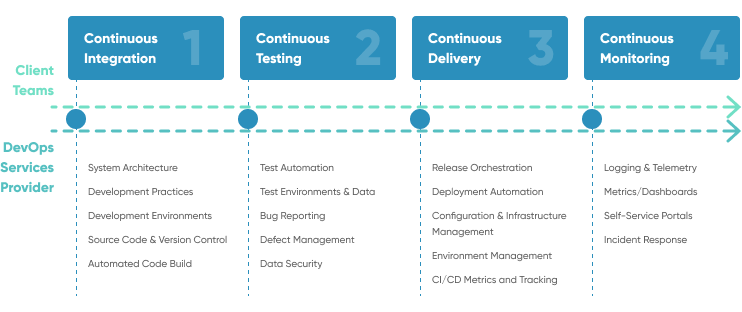
Carefully evaluate DevOps outsourcing providers
Evaluate a DevOps outsourcing company considering all factors that match your needs based on your goals. A technologically superior company may not be enough when your goals and their solutions do not match. Carefully analyze the following before arriving at plausible service providers in the DevOps market.
- Expertise of the DevOps Engineers- Do they have the technical knowledge and exposure to handle the project in your capacity? Are they sufficiently experienced in a similar project and handled solutions to challenges that you are seeking?
- Technological advancement of the Company- Does the DevOps outsource partner have the technological expertise to serve your business needs? Large organizations have a whole stack of technologies at their disposal to cater to various organizations. Not everyone seeks services from larger service providers. Does the organization you are looking into extend the services you are seeking?!
- Evaluate Case Studies- Have a glance at the earlier projects that the services provider has catered to. Is there any similarity between what you are seeking? If not, carefully evaluate and ask how the outsourcing partner may bring about solutions for you since this is a completely different challenge than what they have handled so far. Interact with their clients and find out their experience with the company.
- In-House Solutions- A DevOps services provider who can draw solutions from within the organization has a ready stack of expertise. This is unique business positioning from outsourcing partners because it shows the talent pool within and it saves time and resources and reflects the readiness of the organization in finding out optimal solutions.
Create a list of potential suppliers
To prepare the list, ask your engineers to draft a group of potential DevOps service providers based on the parameters mentioned in step 3. Simple research will yield results based on your requirements for nearshoring or offshoring for better time zone and cultural coordination. Start communicating with the outsourcing companies by stating your clear goals and requirements. Engage with them till you feel the promise of a quality solution emerging. Take the quote and evaluate all the parameters above to arrive at an optimal solution provider who not only matches your budget but at the same time is willing to take an active role and interest in your organization as a partner and not just a customer.
Select and sign a contract.
Once the vendor is finalized, a legal contract may be drawn up to make it official. There are two ways of contracting:
Open-Source Contracting- Allows innovation, culture management, and operations as part of the contract. It includes the scope of making changes as per the changes in the dynamics in the business requirements.
Closed-Scope Contracting- Works on the principle of fixed methods and controlled work functionality.
Choose an Open-Source contract to have flexibility. Both the service provider and the client may define a working framework to define the timelines and the roadmap.

DevOps performance tracking
Along with your new DevOps partner, draw the metrics to ascertain progress and success at every stage of the project evolution. Define timelines, deployment frequency to production, lead time for changes from a code committed to code deployed, mean time to recover from a production failure, and change failure rate for production deployments to name a few. These metrics will show the direction and success of your project.
The metrics reflect innovation, the quicker release of newer capabilities, Stability, and reduction of downtime. This is to say that in DevOps it is to move fast while not breaking things. Measuring the performance of a software delivery team is the foundation of the success of DevOps along with other methodologies. Outsourced DevOps services are one of the ideal ways to address these problems and achieve continuous delivery and continuous integration of software.
Conclusion
For successful DevOps implementation, you will need a valuable outsourcing partner. You do not just need an ideal vendor but an ideal partner who is interested in achieving the goals that you are seeking for your organization and for which DevOps serves the purpose. As mentioned in the article you need to work with the best technical experts in DevOps. Outsourcing companies with vast experience can seamlessly help you transition to the new culture brought by DevOps to collaborate effectively between your software development and IT operations teams. The article above may have given you a broad understanding of how outsourcing DevOps may benefit you and will lead the way for you. Ultimately it is great leverage to partner with a readily accessible talent pool that is willing to serve your needs.


![Incident Response Plan Template For Startup [SM, MD, XL]](/uploads/incident-response-plan-template.png)
